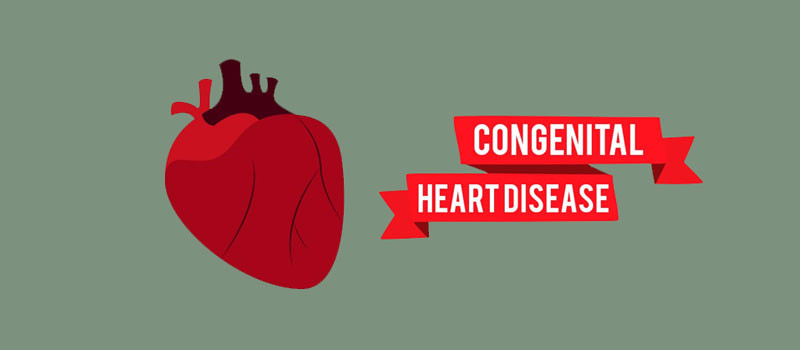Social Disability Lawyer Blog
SSDI Benefits for Congenital Heart Disease
The human heart, which is almost entirely composed of muscle tissue, serves largely as a pump. When oxygen-depleted blood (blood that has previously delivered oxygen) returns to the heart, it is re-oxygenated in the lungs. To complete the oxygen delivery process, the blood returns to the heart (through the pulmonary veins) and is pumped out to the rest of the body. While the method is simple, the heart's anatomy is somewhat complicated. There are various possible problems, as one might assume. Because the heart's function is critical to life, there is little room for error.
How Does the Social Security Administration View Congenital Heart Disease?
Congenital heart problems occur during pregnancy, when the heart is forming. A section of the heart may not develop or expand normally due to a number of diseases, producing problems with the heart's function. Some of these abnormalities are potentially fatal and may necessitate immediate surgical treatment. Others may require monitoring to see how they grow. Others are less problematic and may even go away as the child grows. Some birth abnormalities go unnoticed until the kid reaches adulthood.
Congenital cardiac illness is typically categorized into two types:
- - Non-cyanotic or acyanotic,
- - Cyanotic, which results in blue discoloration owing to a lack of oxygenation.
Congenital heart disease symptoms include:
- - Irregular heartbeat
- - The liver has grown in size
- - The hands and feet are icy
- - A lack of oxygen in the bloodstream results in a blue or purple skin tone
- - Enlargement of the fingers and/or toes
- - Enlargement of the heart Failure of an organ
- - Having difficulty breathing
- - A pulse that is hardly perceptible or undetectable
Treatment for any congenital cardiac issue will, of course, depend on the nature and severity of the abnormality.
Filing for Social Security Disability with a Symptomatic Congenital Heart Disease Diagnosis
Symptomatic Congenital Heart Disease may qualify a person for Social Security Disability benefits, according to Social Security Administration (SSA) requirements. In its disability listing handbook, the SSA defines diagnostic criteria that must be met in order to qualify for payments (commonly known as the "Blue Book"). Some of the requirements are as follows:
- - Intermittent right-to-left shunting (blood movement inside the heart) that causes cyanosis while active and oxygenation interruptions of a predetermined intensity, or
- - Cyanosis (blue appearance owing to inadequate oxygenation) at rest, as well as hematocrit or arterial oxygen saturation values of a predetermined severity level, or
- - Obstruction of the pulmonary arteries, resulting in a predetermined level of severity of raised blood pressure in the pulmonary arteries.
In all cases, the defect must be documented using "appropriate medically acceptable imaging," which means that the presence of the diagnosed defect must be confirmed using either cardiac catheterization or other standard diagnostic imaging such as ultrasound, CT scan, or whatever technique is considered standard for diagnosing that specific disabling condition.
Your Disability Case Due to Symptomatic Congenital Heart Disease
If you or a member of your family is incapacitated as a consequence of Congenital Heart Disease, you may be eligible for Social Security Disability benefits. Due to the possibility of difficulty in demonstrating the presence of a condition, you should speak with a Social Security Disability attorney.
The SSA's standards are intended to guarantee that money earmarked for disability payments is only disbursed to those who truly require them; yet, the unfortunate reality is that far too many people see disability benefits as little more than lifetime unemployment compensation. Unintended effects include making these benefits exceedingly difficult to obtain for people who truly need them. While the government's desire to minimize fraud is praiseworthy, the result is that around 60% of disability petitions are denied. To make matters worse, many of these petitions are denied despite the applicant's actual handicap because of small flaws in the application paperwork. While these deserving applicants will eventually get benefits after a lengthy appeals process, they might have easily avoided the delay by having their applications reviewed by an experienced Social Security Disability lawyer.
Working with you and your team of medical professionals, your Social Security Disability attorney may offer you with the assurance that your case is being handled by someone who is well-versed in the application process and has successfully completed it several times. They are aware of the most common mistakes and how to avoid them. You may then focus on your most important duty: keeping yourself or a loved one as healthy as possible, without the stress of combing through the application and all of the associated paperwork.
For more legal help, you can seek professional advice from our expert disability attorneys at The Law Office of Irene Ruzin.
When you subscribe to the blog, we will send you an e-mail when there are new updates on the site so you wouldn't miss them.

Comments